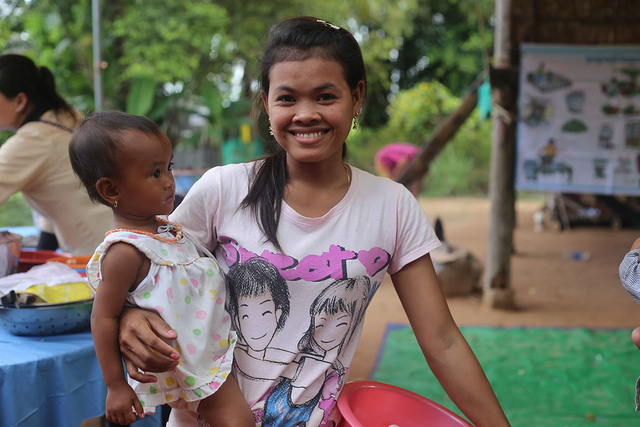Research has shown that children who receive adequate nutrition, particularly during their mother’s pregnancy until they are two years old—referred to by experts as the “1,000 days window of opportunity”—are less likely to die or be made ill by diseases such as diarrhea, malaria, pneumonia, measles, and HIV. Yet almost half of all children in the developing world who do not reach their fifth birthday die because they don’t have enough nutritious food and essential vitamins and minerals, such as vitamin A and zinc, to fight off disease. And most health interventions focus either on helping children who suffer from severe acute malnutrition, or on prevention chronic undernutrition (stunting), but very few combine programmatic interventions to do both prevention and treatment.
The government of Canada announced today a $20 million commitment for an IFPRI-led project that seeks to prevent both acute and chronic undernutrition in children. Working in partnership with Helen Keller International over the next two years, IFPRI researchers will work in three West African countries: Burkina Faso, Mali, and Senegal.
The Honorable Christian Paradis, Canada’s Minister of International Development and La Francophonie, acknowledged the importance of this research. “The knowledge to be generated from the work of the International Food Policy Research Institute will inform and guide global, regional, and national policies to scale up nutrition and improve the management of severe acute undernutrition, and foster optimal health and nutrition in young children,” he said.
The project is unique in its integration of preventive nutrition interventions into existing platforms that focus on the treatment of severe acute malnutrition. Specifically, it will:
- promote optimal feeding practices for infants and young children;
- help parents and caregivers access nutrient-rich foods to supplement the diets of their young children;
- generate knowledge to inform and guide global, regional, and national policies to scale up nutrition; and
- help develop best practices for linking programs focused on treating severe acute undernutrition with interventions to prevent both chronic and acute undernutrition.
“For too long, there has been a disconnect in programs aimed at managing and treating acute undernutrition and those focused on the prevention of undernutrition in young children,” said Marie Ruel, director of the Poverty, Health and Nutrition Division at IFPRI. “This project is unique in two ways: first it plans to bring together interventions for the control and prevention of both acute and chronic undernutrition; and second, it includes a strong research component that will allow documenting impacts and lessons learned for programming and policies to accelerate progress in achieving optimal child nutrition globally.”
More information about the project can be found on the Government of Canada’s Foreign Affairs, Trade and Development website.







